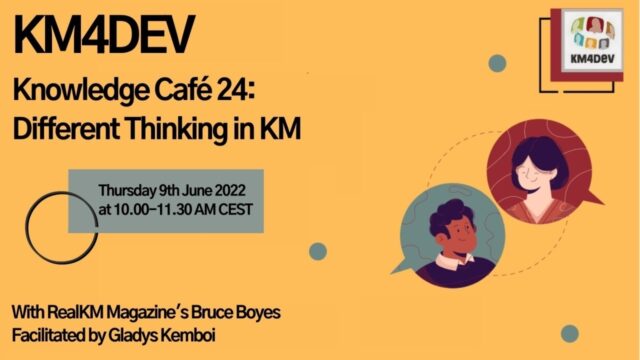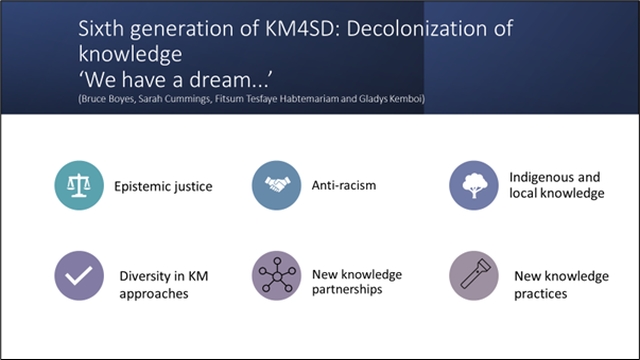
Navigating the complexities of decolonizing knowledge production
By Alemu Tesfaye. Originally published on the Integration and Implementation Insights blog.
Has the movement to decolonize knowledge production caught your attention in recent academic discussions? Do you recognize how colonialism has deeply influenced traditional knowledge systems, embedding biases and inequalities in our academic practices? Given the noble aspiration behind decolonizing knowledge, have you ever paused to critically examine its feasibility and achievability? Are we embarking on a realistic journey towards change, or are we chasing an idealistic endeavor?
Understanding the Challenge
My research journey into decolonizing knowledge production, particularly within the context of forced displacement, revealed stark contrasts between conventional academic narratives and the rich, nuanced perspectives of historically marginalized communities. This experience highlighted the deep-rooted biases and structural inequalities embedded within traditional knowledge systems. Decolonizing knowledge production entails dismantling the structures, biases, and power dynamics that have historically favored Western knowledge systems. This process involves addressing the legacy of colonization, imperialism, and the prevalence of Eurocentric ideas within academia and research. The following key challenges are integral to this discussion:
Historical Inertia: Centuries of colonialism and its legacy have deeply entrenched certain knowledge systems, hierarchies, and biases. These are not easily uprooted.
Power Structures: Knowledge production is closely tied to power structures, both within academia and society at large. Decolonization threatens these power dynamics, which can lead to resistance.
Institutional Barriers: Universities, research institutions, and funding bodies often perpetuate existing knowledge paradigms. Changing these institutions is a complex, time-consuming process.
Epistemic Pluralism: Balancing the promotion of alternative knowledge systems while maintaining rigorous academic standards can be challenging.
Global Interconnectedness: In today’s globalized world, knowledge production spans across borders, intertwining numerous cultural and regional influences. This complex web of global interconnectedness makes it difficult to pinpoint the origins of knowledge and poses significant challenges to efforts aimed at decolonizing knowledge production, as diverse global influences often dilute and obscure local and indigenous contributions.
Strategies for Progress
While achieving complete decolonization may be a lofty goal, there are essential steps the academic and research community can take to make meaningful progress:
Acknowledgment and Awareness: Recognize the historical and ongoing impacts of colonialism on knowledge production. This includes acknowledging biases and inequalities within research and academia.
Inclusivity: Promote diversity in all aspects of knowledge production – from researchers and scholars to the subjects and methodologies chosen. Include voices from marginalized communities.
Interdisciplinary Approaches: Encourage interdisciplinary research that draws from various knowledge systems, fostering a more holistic understanding of complex issues.
Global Collaboration: Facilitate international collaborations that involve scholars from both the Global North and the Global South, ensuring that different perspectives are integrated.
Ethical Research: Emphasize ethical research practices that prioritize the well-being and consent of research subjects, particularly in the context of indigenous knowledge.
Curriculum Revisions: Reevaluate and revise educational curricula to include a more diverse range of authors, theories, and perspectives.
Community Engagement: Engage with local communities and indigenous groups to understand and incorporate their knowledge into research and development projects.
Conclusion
The pursuit of decolonizing knowledge production is not a simple task, and it may never lead to complete decolonization, given the historical and systemic factors at play. However, it is a critical endeavor for addressing the inequities and biases embedded in our knowledge systems.
By fostering awareness, inclusivity, collaboration, and ethical research practices, we can make meaningful progress towards a more equitable and diverse knowledge landscape. While the journey may be long and challenging, the ultimate goal of decolonizing knowledge production is one that aligns with principles of justice, equality, and a more accurate understanding of the world we live in.
Could the pursuit of decolonizing knowledge production pave the way for a more equitable and inclusive academic and research environment? Or, do the challenges seem too daunting? I invite you to share your experiences and insights on navigating these complexities in your fields.
Biography:
 |
Alemu Tesfaye MBA is Regional Programs Manager (Research, Communication, Knowledge Management and ICT (Information and Communications Technology)) at the Organization for Social Science Research in Eastern and Southern Africa (OSSREA), in Addis Ababa, Ethiopia. His interests include communication, knowledge management and translation, and community engagement. |
Article source: Navigating the complexities of decolonizing knowledge production. Republished by permission.
Header image source: Created by Bruce Boyes with Perchance AI Photo Generator.





